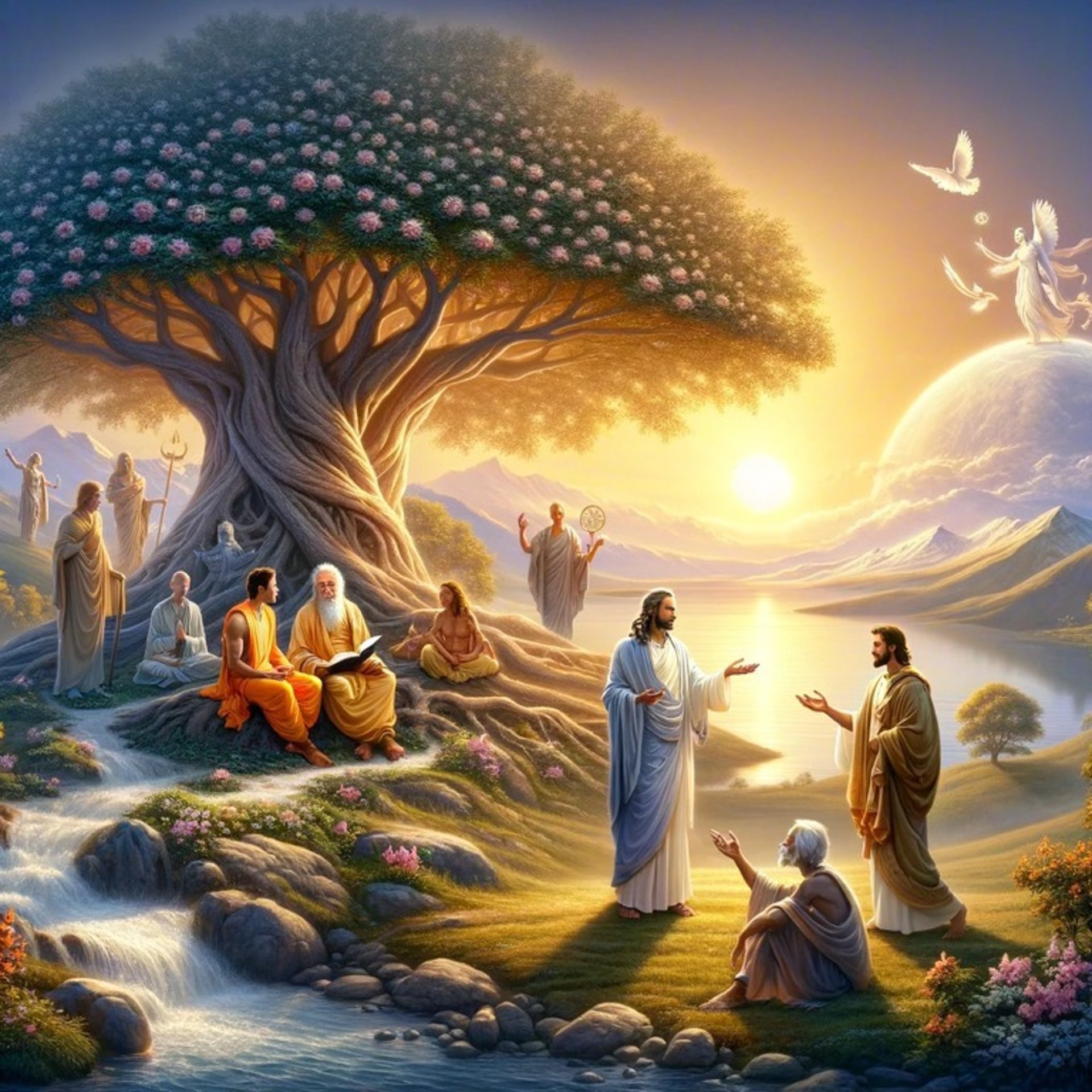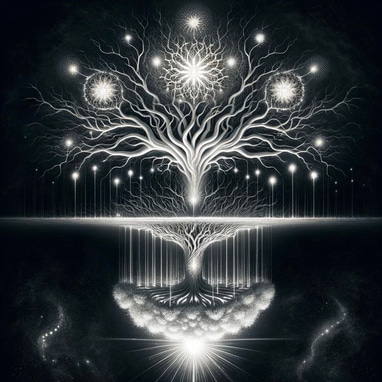
Bridging Divine Wisdom: Integrating the Srimad Bhagavatam and the Bible
Explore the spiritual harmony between the Srimad Bhagavatam and the Bible in our latest article, ‘Bridging Divine Wisdom: Integrating the Srimad Bhagavatam and the Bible.’ This piece delves into the profound similarities and shared wisdom across these sacred texts, highlighting themes of divine unity, the transient nature of material existence, paths to liberation and salvation, ethical living, and the indispensable role of divine grace. Uncover the universal truths that transcend cultural and religious boundaries, fostering a deeper understanding of our spiritual journey. Join us in discovering how these ancient scriptures guide us towards enlightenment, ethical conduct, and a closer relationship with the divine. A must-read for those interested in the interconnection of faiths and the universal quest for spiritual insight.
EASTERN PHILOSOPHY WESTERN PHILOSOPHY
2/9/20242 min read
In the realm of spiritual literature, the Srimad Bhagavatam and the Bible stand as monumental texts that have guided countless souls towards enlightenment, ethical living, and a deeper understanding of the divine. The Srimad Bhagavatam, particularly the verses from the 10th Canto, Chapter 87, verses 14 to 41, presents a profound dialogue that encapsulates the essence of Vedic teachings. This dialogue, rich in philosophical and theological insights, resonates with the spiritual wisdom found in the Bible. This article explores the integration of these sacred texts, shedding light on the universal truths that transcend cultural and religious boundaries.
Unity with the Divine
The Bhagavatam’s discourse on the unity of Atman (the self) with Brahman (the ultimate reality) parallels the Christian concept of achieving oneness with God, as illustrated in Jesus’ prayer for unity among his followers (John 17:21-23). Both texts advocate for a profound connection with the divine, suggesting that this unity is not just the end goal but a path to realizing one’s true spiritual identity.
Transcending Material Existence
Both scriptures emphasize the ephemeral nature of the material world and the permanence of the spiritual realm. The Bhagavatam teaches the importance of looking beyond Maya (illusion) to recognize the eternal self, akin to Jesus’ teachings in Matthew 6:19-21, where the faithful are urged to seek treasures in heaven rather than on earth. This shared perspective encourages followers to prioritize spiritual values over material pursuits.
Paths to Liberation and Salvation
The Bhagavatam’s teachings on liberation through knowledge, devotion, and detachment resonate with the biblical path to salvation through faith and adherence to God’s will (Ephesians 2:8-9). Both texts underscore the transformative power of divine grace and the importance of cultivating a personal and communal relationship with the divine.
Ethical Living and Dharma
Ethical conduct and righteousness are central themes in both texts. The Bhagavatam’s emphasis on Dharma mirrors the Biblical call for justice, mercy, and humility in one’s walk with God (Micah 6:8). These teachings provide a moral compass for believers, guiding them towards actions that reflect divine principles and contribute to the welfare of the community.
The Role of Divine Grace
Finally, the indispensability of divine grace in the spiritual journey is a key theme in both scriptures. In the Bhagavatam, grace is essential for achieving liberation, while in Christianity, grace is the foundation of salvation. This underscores the belief in a compassionate and loving divine that actively participates in the spiritual evolution of humanity.
In conclusion, the Srimad Bhagavatam and the Bible, despite their origins in distinct religious traditions, share profound spiritual insights that offer guidance on the path to divine union, ethical living, and ultimate liberation. By integrating the wisdom of these texts, we are reminded of the universal quest for understanding, love, and connection with the divine. This exploration not only highlights the shared spiritual heritage of humanity but also encourages interfaith dialogue and mutual respect, fostering a more inclusive and compassionate world.


My post content


